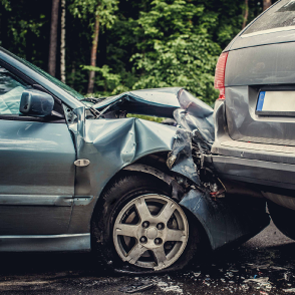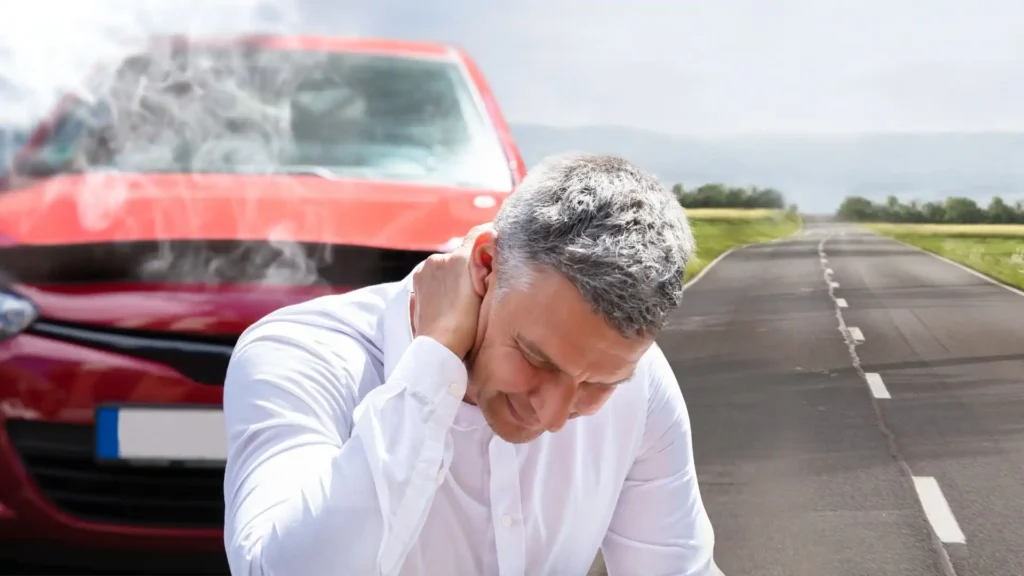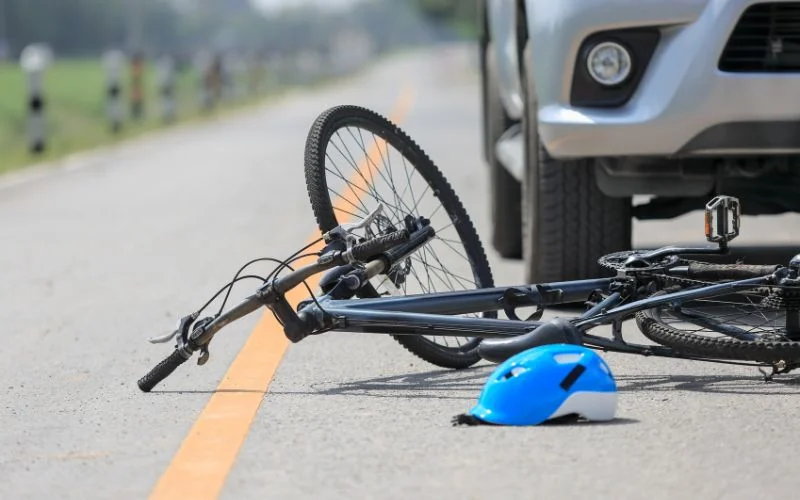What To Do After A Car Accident?
After a car accident, move to safety, check for injuries, call the police, exchange details, capture evidence, and report it to your insurer.

Sarah John's
Legal Writer
9 Essential Steps to Take Right After a Car Accident:
- Stay Calm & Move to Safety
- Check for Injuries
- Call the Police
- Exchange Details
- Document the Scene
- Take Photos & Videos
- Look for CCTV or Dashcam Footage
- Write a Short Personal Statement
- Notify Your Insurance Provider
In this article, we’ll talk about what to do in a car accident and walk you through the steps you need to follow after a car accident. From staying safe to gathering important details, we’ve made it simple so you’ll know exactly what to do, no matter what kind of accident you’re dealing with. Being prepared can help you handle the situation better and keep things from getting worse.
Table of Contents

Get In Touch With Your Local Office:
With local knowledge and a national network of experts, we have the experience you can count on.
Essential Steps To Take Immediately After A Car Accident
Stay Calm And Bring Your Vehicle To A Safe Stop:
What’s the first thing you must do if you have a collision – stay calm. If you can, safely pull over to the side of the road so you’re not blocking traffic. Turn off your engine and make sure your hazard lights are on. This will help make you visible to other drivers, keeping everyone safer.
It’s important to remember that stopping is not just about safety—it’s the law. If you drive away without stopping, it can be considered a hit-and-run, and you could face serious consequences. Always take a moment to make sure everyone is safe and ready to handle the next steps.
Checking for injuries at the scene:
After you’ve safely stopped, the next thing to do is check for injuries—starting with yourself. Make sure you and your passengers are okay. If anyone is seriously hurt, don’t wait—call 999 for immediate help. Getting quick medical attention is important, even if you feel fine at first. Sometimes, injuries can show up later, so it’s always a good idea to see a doctor or visit a walk-in clinic just to be sure.
Remember, the car can often be fixed, but your health is the most important thing. Even if you want to check your car, prioritise checking for any injuries. It’s normal to worry about your vehicle, but in the end, your health should come first.
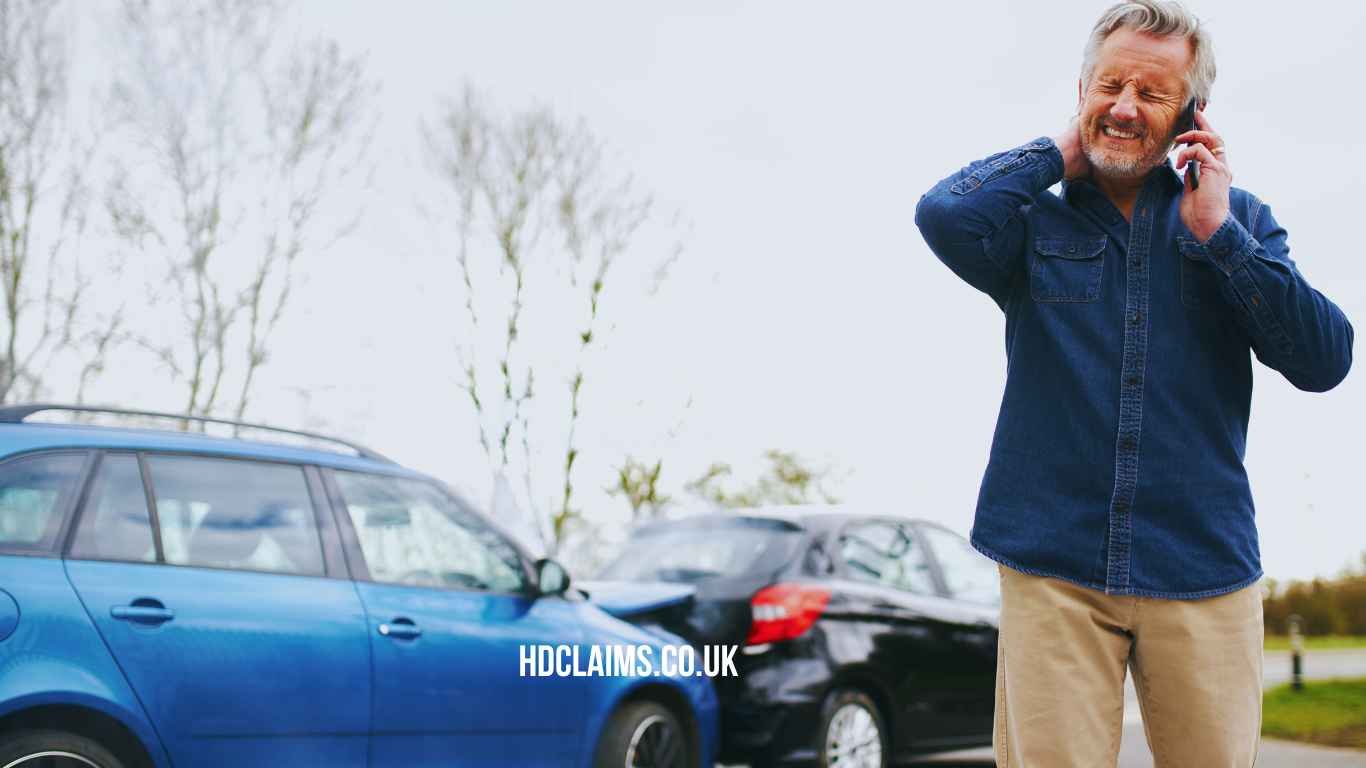
When and why you should contact the police after a crash?
You should contact the police in certain situations to make sure everything is handled correctly. If the other driver leaves without giving their details or you suspect they don’t have insurance or might be under the influence of alcohol or drugs, call the police right away. Also, if you think the accident was caused on purpose, the police need to be involved.
It’s also important to report the crash to the police within 24 hours. Failing to do so can lead to serious consequences, such as fines, points on your license, or even being disqualified from driving.
Exchange information with drivers and witnesses
After an accident, it’s important to exchange details with everyone involved—other drivers, passengers, and even witnesses. You are legally required to share your information, and the police may need it, too.
Make sure you give the following details:
- Your name, address, and contact information
- Your driving license number and vehicle registration
- Your insurance details
Also, take the same information from others involved in the accident. Even though it can be a stressful time, it’s important to stay calm and polite. Avoid placing blame or getting into arguments. This will help keep the situation from getting worse.
What to record at the accident scene for your protection?
After a car accident, it’s important to keep a detailed record of everything that happened. This will help protect you and make the process easier if you need to make a claim or report the accident.
First, make sure you exchange what details to take in car accident with everyone involved, such as names, addresses, and insurance information. Don’t forget to ask for witness details as well.
You should also record:
- The time and date of the crash
- The make, model, colour, and number plate of the vehicles
- The driving conditions, including weather and road quality
- Damage to your car and where it happened
- Any injuries to people involved
- Witness names and contact info
- Receipts for any alternative transport if you can’t drive your car
Taking photos of the cars, damage, and the scene is also crucial. If you’re dealing with a parked car or no one else is around, leave a note with your details. This is important car accident help for your protection.
Capturing photo and video evidence at the crash site:
After an accident, taking photos and videos is important for recording what happened. Start by capturing the damage to vehicles or nearby property, like bikes or fences.
Make sure to film your car’s overall condition, including any damage that was already there before the crash. Take shots of the accident scene to show where it occurred, and look for any evidence, like tyre marks or skid marks, that explains what happened. These can be crucial for your claim or legal protection.
Look for CCTV footage to support your car accident claim
After an accident, check if there are any CCTV cameras nearby, like those from shops or public places. Dash cam footage from your own car or footage from bystanders can also help back up your claim.
If you’re unable to find footage, don’t worry—contact your insurance company. They might be able to help you track down relevant video evidence for your case.
Write a personal statement and diagram the accident
As soon as you can, write down your account of what happened while the details are still fresh. This can help you remember key facts later.
Sketch a simple diagram of the accident scene, noting the road names and your direction of travel. Include your speed at the time, along with information about the weather and road conditions. Don’t forget to mention any injuries that occurred. These details will be useful for your insurance claim and any legal matters.
Reporting the accident to your car insurance provider
It’s important to report any accident to your insurance company as soon as possible, ideally within 24 hours. Reporting an accident to insurance quickly helps speed up the process and ensures your insurer can assist you sooner. When you call, have your policy details ready, as well as the information of anyone else involved in the crash.
Be sure to share all the evidence you’ve collected, including photos and details about any damage or injuries. This will help your insurer assess the situation and figure out who’s at fault.
While a car crash is something we all hope to avoid, knowing what to do if it happens can protect you from legal or financial problems.
DEDICATED CLAIMS ADVISORS
Our dedicated claims advisors are always available to offer free legal advice.
100% NO WIN NO FEE CLAIMS
All our claims are processed on a No Win No Fee basis; you pay nothing if you lose.
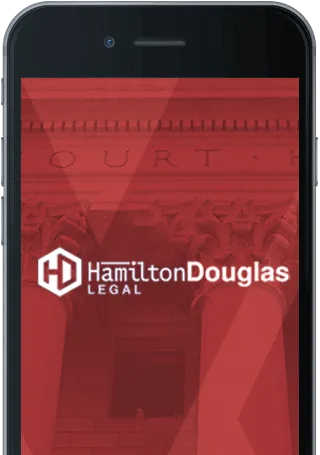
MILLIONS SECURED IN DAMAGES
To date, we have secured millions in damages.
THOUSANDS OF SATISFIED CLIENTS
To date, we have helped thousands of clients recover compensation and continue to do so.
How long do you have to inform your insurer about an accident?
If you’ve been in an accident, it’s important to tell your insurance company as soon as possible. Most insurers require you to report the accident within 24 hours. The sooner you notify them, the quicker they can help you with the next steps. Knowing how long do you have to declare accidents for car insurance is essential to ensure your claim is processed smoothly.
Can I still drive my car after an accident?
It’s illegal to drive away from an accident without stopping, but once you’ve completed all the necessary steps, you can drive your car if it’s still safe to do so. If your car seems drivable, take it for a quick check to make sure everything is in good condition. If you’re unsure, it’s better to get it checked by a mechanic first. Driving a damaged car without checking it could void your insurance coverage.
Should I see the doctor after a car accident, even if I feel fine?
Even if you feel fine after an accident, it’s a good idea to see a doctor. Sometimes, injuries may not show up right away, like internal injuries. Going to your GP or visiting Accident & Emergency can help make sure you’re truly okay. It’s always better to be safe and get checked out, just in case.
Common injuries caused by road traffic accidents
Car accidents can lead to a wide range of injuries, some of which may be more serious than others. Here’s a breakdown of the common types of injuries that might occur:
- Slight Injuries: These are less severe injuries, such as whiplash, bruising, or minor cuts and scrapes. You might also experience some muscle strains or sprains.
- Less Serious Injuries: These include deeper cuts, fractures to the hand, arm, or legs, and minor head injuries that need medical attention but aren’t life-threatening.
- Moderately Serious Injuries: These are more intense, like chest injuries or fractures to larger bones like the thigh or pelvis.
- Very Serious Injuries: These can be life-threatening, such as broken necks or spines, severe head or chest injuries, and internal injuries. These injuries might cause unconsciousness or trouble breathing.
- Motorcycle Injuries: Injuries from motorcycle accidents tend to be more serious than in cars due to less protection. Recovery can take much longer, and some injuries are harder to treat.
Accidents can affect us in many ways, even if they seem minor at first. Always seek medical care—better safe than sorry!
What should I do after a car accident if the other driver leaves without stopping?
If the other driver leaves the scene without stopping, it’s known as a “hit and run.” This is a serious crime that can lead to a prison sentence of up to six months.
First, try to stay calm. If you’re able to, gather as much information as possible, like the make, model, and color of the vehicle, and anything else you remember. Record the time and location of the incident, and collect contact details from any witnesses, if available.
If the other driver can’t be found, you can still get help through the Motor Insurance Bureau (MIB). They’re a group of UK insurers who help people who have been injured in situations like this, especially when the driver can’t be traced, is uninsured or has used a stolen vehicle.
Don’t worry—you have options. You can reach out to the MIB at 01908 830001 to see if you qualify for a compensation claim. They’re there to guide you through the process and help you get the support you need.

Can’t Work Due To Illness Or Injury?
Use our free online claim check tool and find out in minutes if you have a claim.
Steps to take if you’re involved in a car accident that’s your fault
If you’re involved in a crash that’s your fault, the first thing you should do is stay calm and follow the necessary steps, like exchanging information and reporting the accident to the police if needed.
Your insurance company will cover the vehicle repairs, but you’ll need to pay the excess—the part of the claim you agreed to when you took out your policy. Keep in mind that this might also affect your no-claims bonus, meaning you could lose part of it, and your insurance premium might go up when it’s time to renew.
If the other party is injured and makes a claim for compensation, your insurance will handle it if the claim is successful. However, if you were injured, you won’t be able to claim compensation since you were at fault for the accident.
It’s important to report everything honestly, as insurance companies and the police will help determine the situation.
What happens if the car accident isn’t your fault?
If the car accident wasn’t your fault, the other driver’s insurance will cover the cost of your vehicle repairs. If you’ve been injured, you may also be able to make Car Accident Claims for compensation. Our panel’s No Win No Fee Solicitors can help you with this, so you won’t have to pay unless you win the case. For a confidential chat and advice about your situation, call 01412801112.
Dealing with a crash caused by someone trying a ‘crash-for-cash’ scam
A “crash-for-cash” scam happens when someone purposely causes an accident to make a fraudulent insurance claim. They may suddenly brake, causing you to hit the back of their car, or flash their lights to trick you into thinking it’s safe to go, only to crash into you. Some may even tamper with their brake lights to give you no warning when they stop.
In these situations, the scammer will often blame you for the accident and quickly provide you with their insurance details, sometimes even pre-written on a piece of paper. A few weeks later, you might receive a letter from your insurance company stating the third party’s exaggerated claims, such as car hire or injuries they never had.
So, what to do after a minor car accident UK? First, try to stay calm. Be aware of any unusual driving behaviour, like sudden braking for no reason. If someone’s brake lights aren’t working, increase your distance. Always be cautious in stop-start traffic, junctions, and roundabouts.
What to do when someone hits your car? If you’re in a situation where the accident seems like part of a scam, having a dashcam can be a lifesaver. It provides clear evidence that can protect you and prove that the crash was planned. Always document the scene and collect as much information as possible, including witness details and photos of the damage.
What are my rights if I wasn’t wearing a seatbelt?
The law requires everyone in a moving vehicle to wear a seatbelt, whether in the front or back seat. However, if you weren’t wearing one during an accident, you might still be able to make an injury claim, especially if the accident wasn’t your fault.
Even if the accident was caused by someone else, not wearing your seatbelt could affect the compensation you receive. If your injuries were worse because you weren’t wearing one, the insurance company may reduce your payout due to contributory negligence. This means that although you weren’t at fault for the accident, not wearing a seatbelt made your injuries worse, so you share some responsibility.
For example, let’s say the value of your injury claim was £30,000. If it’s decided you were 25% responsible for not wearing your seatbelt, your compensation could be reduced by 25%, leaving you with £21,500 instead of the full amount.
While you can still claim, it’s important to remember that wearing a seatbelt can greatly reduce both the chance of injury and the impact on your claim.
SeatBelt laws and how they apply after a car accident?
In Scotland, it’s the law to wear a seatbelt in both the front and back seats of a moving vehicle. There are a few exceptions, like if you’re a passenger on a bus without seatbelts, if you have a medical exemption, or if you’re delivering goods in a commercial vehicle and you’re within 50 meters of your next stop.
When it comes to children, the rules are stricter. Children under 14 must always wear a seatbelt or sit in an approved child seat. If they are under 1.35 meters tall, they need to use a baby seat, booster seat, or booster cushion.
After a car accident, not wearing a seatbelt can affect your compensation if you’re injured, as it may be considered part of the cause of your injuries. Always wear your seatbelt to stay safe and comply with the law.
What if I don’t claim?
Even if you decide not to make a claim, you should still report the accident to your insurer. The other driver might try to claim against you without you knowing. You might choose not to claim if you want to keep your no-claims discount, especially if you don’t have a “protected” discount. Alternatively, if you decide to pay for repairs out of pocket, you should still notify your insurer.
Can I make a claim on behalf of someone else involved?
Yes, you can make a claim on behalf of someone else, especially if the person is unable to do it themselves. This often happens if the injured person is under 16 years old or an adult who is mentally or physically unable to handle the claim due to their injury.
The person making the claim for them is called a litigation friend. This could be a parent, family member, trusted carer, or even a legal guardian. A litigation friend works with a solicitor to make decisions for the claimant, always keeping their best interests in mind.
If you’re in this situation and need help, call 01412801112 for a confidential chat; we can guide you through the process.
Time limits you should know about when making a claim
If you’ve been injured in a car accident, it’s important to know there are time limits for making a compensation claim. Normally, you have three years from the date of the accident to start your claim.
If you are acting as a litigation friend for someone who can’t claim for themselves because of injury or mental/physical issues, there are no time limits. This could be due to the injuries caused by the accident or a pre-existing condition.
For children or minors under 16, you can make a claim for them anytime before their 16th birthday. If no claim is made by then, the child has up to three years after turning 16 to make a claim, until they turn 19.
These time limits help ensure personal injury claims are made promptly, so it’s best to start the process as soon as possible.
Stranded on the hard shoulder – what should I do?
Being stuck on the motorway’s hard shoulder can be stressful and even dangerous. If this happens, it’s important to stay calm and follow these steps to stay safe.
First, try to pull over as close to an emergency telephone as possible. These phones are spaced roughly every mile along the hard shoulder and are usually painted orange. Using one will help the police or highway authority locate you quickly.
Make sure your hazard lights are flashing to make your car visible to other drivers. When you leave the vehicle, always use the left-hand doors (the nearside). This may feel awkward, but it’s safer than getting out on the right-hand side where traffic is moving.
Next, move yourself and any passengers to a safe place away from the hard shoulder. If you have pets in the car, leave them inside unless it’s an emergency. If you take them outside, make sure they’re securely restrained and kept far from traffic.
Remember, it’s important to stay calm and follow these steps to stay safe while you wait for help.
What should I do if my car accident involved an animal?
Accidentally hitting an animal while driving can be upsetting and distressing. If you hit an animal like a dog, horse, goat, or any other large animal, you must notify the police, as it’s a legal requirement under the Road Traffic Act 1988. It’s a criminal offence not to report it, so make sure to act quickly.
If you hit a dog or a cat and you’re aware of it, stop if it’s safe to do so. Move the animal to a safe place if you can, and if possible, keep it warm with a blanket or coat. If the animal has a collar with a tag, try to contact the owner or take the animal to the nearest vet.
For dogs, you must report the accident to the police within 24 hours by dialling 101. If the dog doesn’t have a collar, it may have a microchip, which the vet can check. As for cats, while you don’t always have to report it to the police, it’s important to stay aware as laws are being reviewed about this.
If you’re unable to move the animal or it’s badly hurt, contact the SSPCA emergency service on 03000 999 999 for help. You can also call a local vet if the animal needs urgent care.
In the case of wildlife, like rabbits, foxes, or birds, you generally don’t need to report them unless they’re seriously injured or in a dangerous spot. However, larger animals, like deer, may require you to get professional help immediately, either from a vet or the SSPCA. If needed, notify your local council for further assistance.
Always stay calm and do your best to help the animal, keeping their safety and your own in mind.
Easy Ways To Get In Touch
We are here to help. Give us a call, request a call back or use our free claim check tool to get in touch with our friendly legal team. With local knowledge and a national network of experts, we have the experience you can count on.



